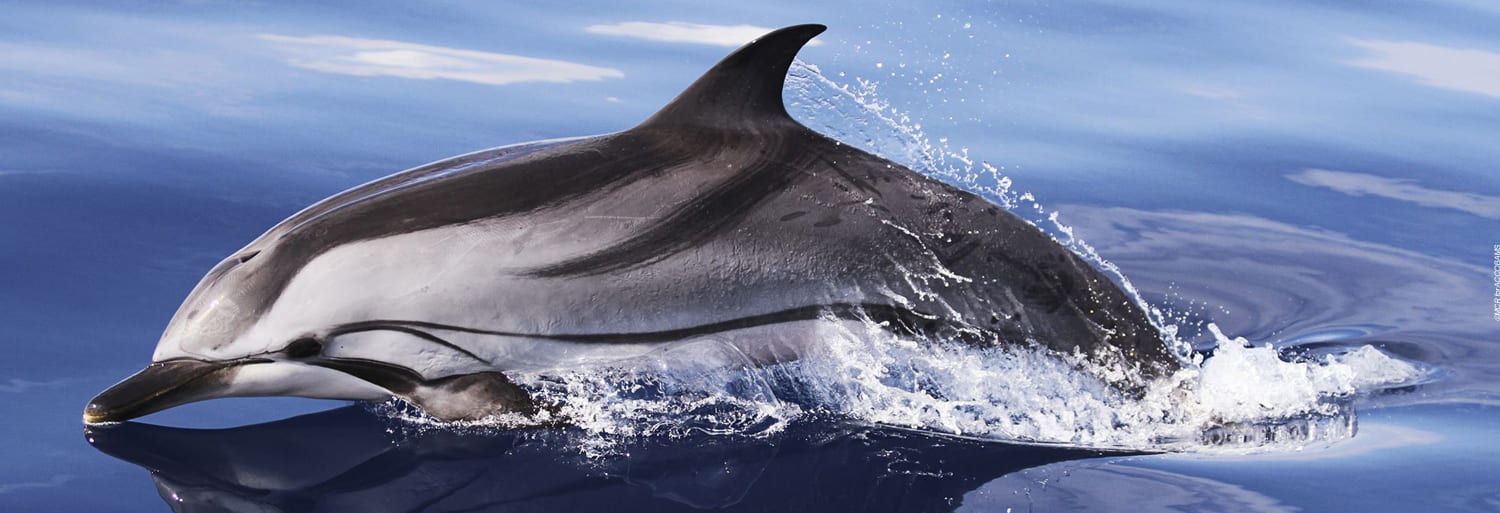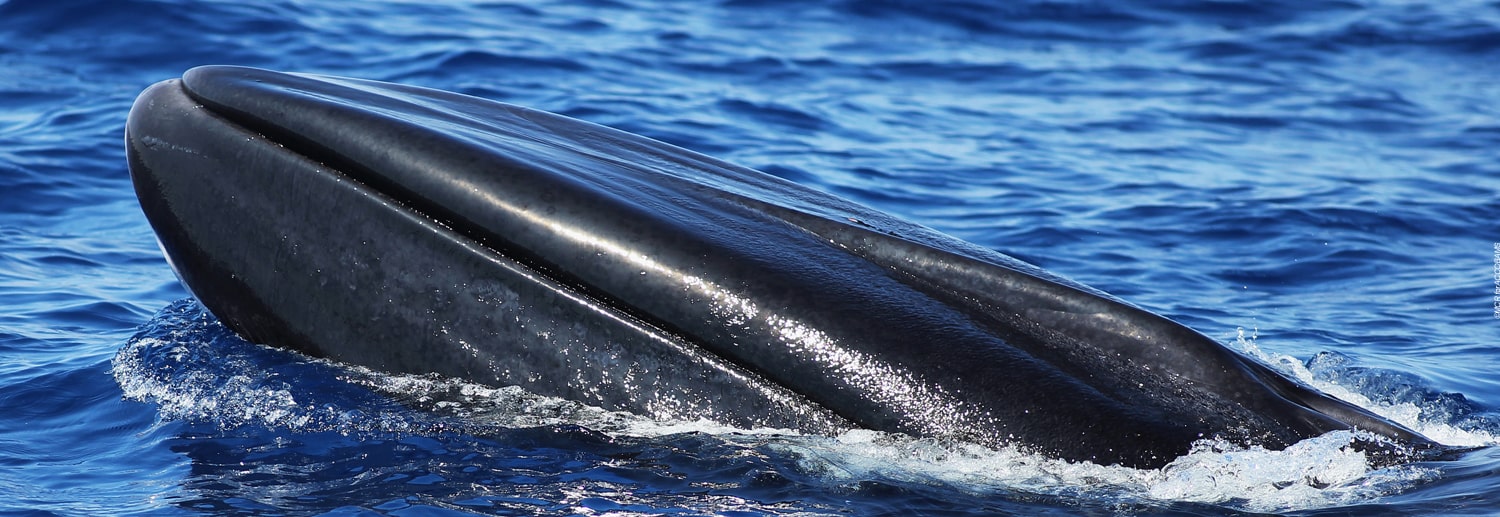Cetacean watching
Whale-watching activities are increasing in the Mediterranean. If well managed, and within a substantial framework, they are a wonderful vector for environmental education, contribute to the local economy and can promote research on cetaceans and their conservation. However, in the absence of a framework, they can grow too fast, increasing pressure on the environment and disturbing animals, and give rise to serious repercussions for the populations concerned.
Since 2004, several studies have shown that such activities are increasing in the Mediterranean, particularly in north-western regions. Aware of these challenges, many whale-watching operators from the Pelagos Sanctuary have come together, at the initiative of the Pelagos Sanctuary and the Agreement on the Conservation of Cetaceans of the Black Sea, Mediterranean Sea and contiguous Atlantic Area (ACCOBAMS), with the support of several Non-Governmental Organizations (NGOs). This collaboration has led to the creation of a consultative and voluntary management tool to ensure the sustainability of these activities – a certification for whale-watching operators that are involved in initiatives fostering quality and environmental responsibility.
In addition, it is important to note:
* That ACCOBAMS Resolution 4.7 sets out Guidelines for the observation of cetaceans for commercial purposes in the ACCOBAMS area;
* That by virtue of Article II, paragraph 1 of ACCOBAMS, the Parties prohibit and take all necessary measures to eliminate any deliberate taking of cetaceans, including disturbing them or attempting to perform such activities;
* That pursuant to Section 1.c) of Annex 2 to ACCOBAMS, the Parties require that impact assessments be carried out in order to provide a basis for either allowing or prohibiting the continuation or the future development of activities that may affect cetaceans or their habitat in the Agreement area, including tourism and cetacean-watching, as well as establishing the conditions under which such activities may be conducted;
* That Resolution 4.5 of the Pelagos Agreement on the creation of a certification for marine mammal-watching activities for commercial purposes in the Pelagos Sanctuary has been adopted by the State Parties;
* That Article 8 of the Pelagos Agreement on the protection of marine mammals in the Mediterranean provides that “In the Sanctuary, the Parties regulate the watching of marine mammals for the purposes of tourism”;
* That the Pelagos Sanctuary provides unique potential for tourists to watch marine mammals and for such watching to become an exceptional awareness-raising and educational tool;
* That cetacean-watching activities for commercial purposes, where properly conducted, should be encouraged since they contribute to educating the general public and raising awareness of cetaceans and their habitat, and also have other potential benefits including economic benefits;
* That such activities, if carried out in an inappropriate way, may lead to detrimental disturbance of marine mammals; and lastly
* That paragraph 130 of the document “The Future We Want”, adopted in 2012 by the Rio Conference on sustainable development (Rio +20) highlights the necessity of supporting activities related to the sustainable development of tourism and capacity-building in this regard, which foster knowledge of the environment, preserve and protect the environment, respect wildlife, flora, biodiversity, ecosystems and cultural diversity, and improve living conditions and sources of income for local populations by protecting their economy, as well as the natural environment overall.
In this context, and to meet the requirements of the State Parties to the Agreement, ACCOBAMS and the Pelagos Sanctuary wish to promote good practices for cetacean watching for commercial purposes. The collective certification mark “High Quality Whale-Watching®” is voluntary, individual and participative, and acts as an incentive to ensure that good practices and responsible methods are implemented by operators involved in whale watching at sea, as well as their crews. It also contributes to optimizing existing initiatives.
Documents of interest
ACCOBAMS-MOP3/2007/Resolution 3.23 – Commercial Whale-Watching: Towards a Label
ACCOBAMS-MOP4/2010/Resolution 4.7 – Guidelines for Commercial Cetacean Watching Activities in the ACCOBAMS Area
ACCOBAMS-MOP6/2016/Resolution 6.20 – Commercial Cetacean Watching Activities in the ACCOBAMS Area
ACCOBAMS-MOP8/2022/Resolution 8.19 – Commercial Cetacean Watching Activities in the ACCOBAMS Area
Wildlife Watching and Tourism – A study on the benefits and risks of a fast growing tourism activity and its impacts on species (CMS)
IWC Whale Watching Handbook – a comprehensive, online tool for regulators, industry and the general public





